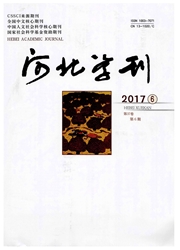

 中文摘要:
中文摘要:
在传统单位体制下,国企单位组织内职工具有极强的同质性,而缺少分化,从而为单位组织的一致性提供了基本的组织认同前提。但从20世纪末开始,伴随着中国迈向社会主义市场经济,国企单位组织逐渐走向消解。其重要表现之一,便是单位组织内部出现了较大数量的不同身份的工作者,派遣工人便是其中重要的组成部分。毫无疑问,作为企业为降低人力成本和提高劳动力弹性化而采用的一种非典型用工形式,派遣工人的存在为企业带来了较为显著的经济效益,但也必然会引发国企组织内部的纠纷和矛盾。本文以C市A厂千余名劳务派遣工人的集体行动为个案,试图探究这一特殊工人群体在“互惠伦理”受到挑战之时愤而放弃长达十年对于A厂的“同意”转而发起维权的过程,凸显出当前中国工人群体权利意识之薄弱,其自身的合法权益在很大程度上可以被厂方收买而被遮蔽,而“维权”行动的选择更是带有一定的工具性考量在其中。
 英文摘要:
英文摘要:
Since the end of the 20th century, the organization of the state-owned units began to go to their ends with the socialist market economy in China. One of the marks is that some workers with different i- dentities go to work in the factories, such as dispatched workers. Without doubt, this is not a typical form of employment by enterprises to reduce labor costs and improve labor flexibility. However, this form will inevitably bring about the internal disputes and conflicts. This paper tries to explore this special group of workers challenged in the" reciprocity of ethics" who have worked for ten years and have to give up their "agree" to work in the factory to initiate the process of rights. This highlights the weakness of rights con- sciousness of the current Chinese workers" groups. Their legitimate rights and interests can be bought and sold by the factory to a great extent. And " rights protection" action choice is accompanied by a certain tool of considerations.
 同期刊论文项目
同期刊论文项目
 同项目期刊论文
同项目期刊论文
 期刊信息
期刊信息
